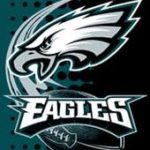With a 40,000-person strong waiting list for season tickets, you would think Tim McDermott, CMO of the Philadelphia Eagles, could pull back a bit on his marketing activities. On the contrary, explains McDermott, with whom I was delighted to meet through The CMO Club, “We don’t want to be naïve and think that it can’t go away.” As a result, he and his 40-person team are busy, even in the off-season, doing everything within their power to grow the Eagles brand.
After being named “Global Sports Team of the Year” in 2011 and ranked 7th among all 32 NFL teams by Forbes in terms of franchise value, there can be little doubt that Eagles brand is a strong one. A closer look at how McDermott and his team tackle marketing regardless of the on-field performance of the team, reveals an eight-part playbook that should inspire marketers in just about any field.
1. Listen Up—Create a Customer Advisory Board
Lots of brands pay lip service to listening to their customers. With a 35-person season ticket holder advisory board that, according to McDermott, acts as “an extension of our marketing department,” the Eagles are doing just the opposite. Instead of inviting the typical slew of complaints one would expect, this open-door approach “help[s] us create the solution.”
2. Go Long—Develop Your Next Generation of Customers Now
Few brands think long-term when it comes to developing their customer base. Since 2004, the Eagles have targeted kids in various ways, including a TV show, a website and a club that McDermott says is “the largest kids’ club membership of any sports team in the world.” Acknowledging that these activities are more brand-building than revenue-generating, McDermott has his eye on “future fans” and the promise they represent.
3. Fans First—Think of Your Brand as a Public Trust
Imagine the impact of more marketers acknowledging that their “fans are the true owners” of the brand. McDermott believes that a fan-centric approach takes a lot of the complexity out of the business of marketing and brand building, remarking, “If you think this way, you simply do what is right for the fans.” He adds, “With social media, there’s more fan voice in the marketplace,” marveling “how much power the consumer has now.”
4. Tune In—Dedicate Expert Resources to Social Media
Recognizing the need, most brands these days are looking to expand their in-house social media team. McDermott started this process when he returned to the Eagles in 2010. “We needed people who were 100% dedicated to evaluating, understanding and determining how to use all of the new digital media technologies,” he recalls. Now staffed with social media coordinators, his team is “speaking as the Eagles and engaging consumers.”
5. Do Good—But Stick With It
Only dabbling with social responsibility programs is like calling a time-out after every play. On the other hand, since launching its “Tackle Breast Cancer” campaign back in 2004, the Eagles have shown the long-term commitment it takes to truly benefit the cause and the brand. After selling 32,000 pink hats in its first year, the Eagles have gone on to raise nearly $2 million over the last eight years in donations for breast cancer awareness.
6. Think Big—About the Business You Are In
Business history is strewn with the carcasses of brands that defined their category too narrowly. This is not a problem for McDermott, who sees the Eagles as more of a media company than a sports team, “aggregating millions and millions of impressions.” As such, McDermott expects “you’ll see us acting and executing more like a media company, producing and distributing content.”
7. Think Broad—About Your Marketing Department
Unlike most marketing departments, McDermott’s doesn’t stop with the folks who create and monitor communications. Calling this approach “myopic,” McDermott prefers to define marketing as “everything that isn’t happening on the ball field,” which is why his “marketing team” also includes a TV production group and all of the merchandising staff who sell Eagles gear online and off.
8. Look Ahead—Leave Some Time/Money For Experimentation
With budgets always tight, it’s harder than ever to test new approaches. McDermott sees experimentation as essential, especially in the digital world. “I’m fascinated by some of the augmented reality concepts,” notes McDermott, who is excited to see how these concepts can scale and recognizes that the PR alone could make them worthwhile. McDermott imagines A/R could bring “tickets to life” or drive a virtual store that pops up during tailgating parties at the stadium.
Final Note: The Eagles finished with an 8-8 record and without a Superbowl ring in the 2011-2012 season, leaving their notoriously passionate fans underwhelmed and McDermott eager for a fruitful draft, which by all reports they achieved. As such, expect more excitement from the Eagles next season, and in the meantime, please see my extensive interviews with their super CMO on past posts here on TheDrewBlog.com. (If this article seems familiar, that’s because you saw it first on FastCompany.com).

